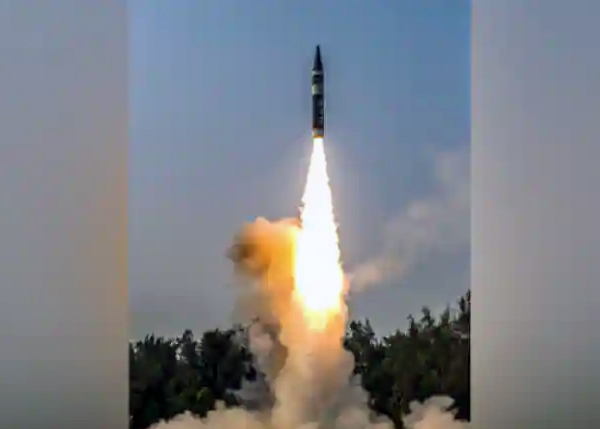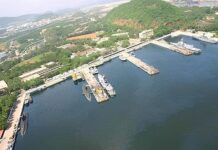A new generation nuclear-capable ballistic missile ‘Agni P (Prime)’ was successfully test-fired from an island off India’s eastern Odisha coast, the Defence Research and Development Organisation said on 18 December.
This was the second test of the Agni Prime missile. The test was conducted at 11 am off the APJ Abdul Kalam Island in Balasore.
The country had, for the first time on June 28, successfully test-fired its new generation nuclear-capable Agni Prime missile. P
About ‘Agni P’
The ‘Agni P’ is a two-stage canisterised solid propellant ballistic missile with dual redundant navigation and guidance system, it said.
Canisterisation of missiles reduces the time required to launch the missile while improving the storage and ease of handling, according to DRDO.
The surface-to-surface ballistic missile has a range of 1,000 to 2,000 km.
This second flight-test has proven the reliable performance of all the advanced technologies integrated into the system, DRDO said.
The Agni-P missile aims to further strengthen India’s credible deterrence capabilities
What are Agni missiles?
Agni class of missiles are the mainstay of India’s nuclear launch capability, which also includes the Prithvi short-range ballistic missiles, submarine-launched ballistic missiles and fighter aircraft.
Agni-V, an Inter-Continental Ballistic Missile (ICBM) with a range of over 5,000 km, had been tested several times and validated for induction.
The Agni-P and Agni-5 ballistic missiles trace their origins back to the Integrated Guided Missile Development Programme (IGMDP), which was spearheaded by former DRDO chief and ex-Indian president Dr APJ Abdul Kalam in the early 1980s.
Agni missile Ranges
Agni I: Range of 700-800 km.
Agni II: Range more than 2000 km.
Agni III: Range of more than 2,500 Km
Agni IV: Range is more than 3,500 km and can fire from a road mobile launcher.
Agni-V: The longest of the Agni series, an Inter-Continental Ballistic Missile (ICBM) with a range of over 5,000 km.


















